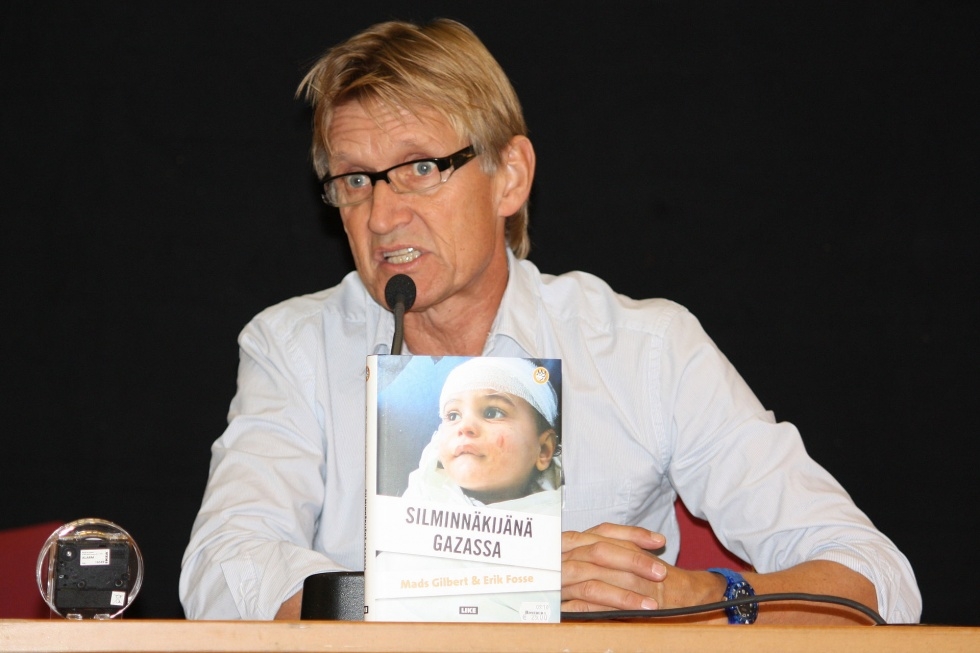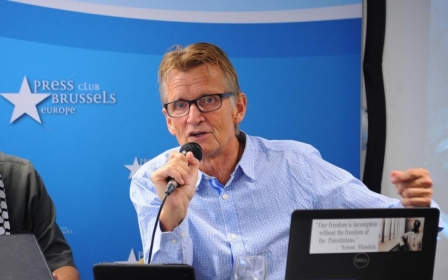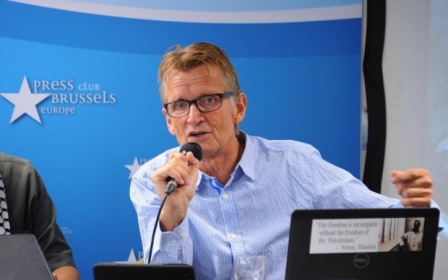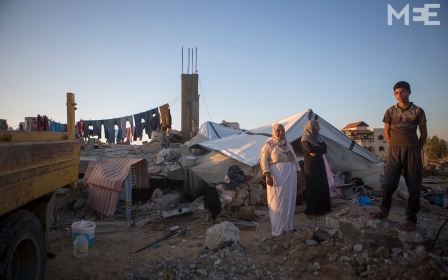Israel deny banning Mads Gilbert from Gaza for life

Israel denied on Monday that they have banned Norwegian doctor Mads Gilbert from entering Gaza for life, and claimed the decision had been taken solely on the basis of a “security consideration."
Dr Gilbert – who has provided medical care to Palestinians in Gaza for over 15 years - responded to the comments by accusing Israel of attempting to repair the fallout over his ban and trying to hide the “facts on the ground” around humanitarian suffering in Gaza.
Israeli Foreign Ministry spokesperson Paul Hirschson told AFP that Gilbert “has been banned from entering Israel," but denied he had been blocked from entering the Gaza Strip.
Gilbert, however, said he was specifically barred from Gaza on 1 October, explaining that he had travelled to the border crossing through Israeli territory.
“The Israeli official can’t be correct as I was standing at Erez [crossing] and denied entry to Gaza – to get there you have to travel through Israel,” he said. “I was scrutinised by Israeli security at the Allenby Bridge [the crossing between the West Bank and Jordan] and allowed to enter,” he told MEE.
Gilbert emphasised he had a host of necessary and valid travel documents when he was refused entry to Gaza.
The Norwegian doctor worked at Gaza’s Shifa Hospital during Israel’s recent 51-day assault on the Strip, which claimed the lives of over 2,200 Palestinians, mostly civilians, and 73 Israelis, mostly soldiers.
Entry to the Gaza Strip is only possible through the Erez crossing from Israel, or Rafah on the Egyptian border, which has been blocked by Cairo since a deadly suicide bombing in north Sinai last month.
Israeli spokesperson Hirschson denied the ban was a punishment for Gilbert’s outspoken criticism of Israel’s occupation in Palestine.
“The decision is exclusively a result of a security consideration,” he said without explaining further. “It is not a punishment and therefore it has no time frame.”
“It is not forever as some have implied, but for as long as the security considerations which had led to it remain the same," he added, without giving an indication how long the ban will remain in place.
Norwegian authorities have publicly opposed the decision and have said they are pushing Israel to reverse the ban.
Gilbert responded to Israel’s explanation for the ban by claiming that it is part of their ongoing blockade on Gaza, in place since Hamas took control of the enclave in 2006.
“They [Israel] are fiddling around with explanations and trying to get around the outcry this denial has caused,” he said.
“Israel is not only keeping 1.7 million Palestinians in a ghetto and bombing them with no escape, they are also denying all these people access to the international community – be it health and NGO workers or journalists.”
“The security threat to Israel is not Dr Gilbert but facts on the ground in Gaza and the ongoing atrocities being committed there. Anyone who has described the enormous human suffering in Gaza will be seen as a security threat to Israel because that is staining their image internationally.”
Gilbert is considering challenging the ban in Israeli courts and has said he will “not be stopped” in providing medical care to Palestinians in Gaza.
A UN Human Rights Council delegation was also refused entry to Gaza earlier this month, while attempting to investigate possible war crimes committed during the recent Israeli military assault on the enclave.
The Schabas commission – named after lead investigator Professor William Schabas - were refused entry to Israel after arriving in Jordan on 12 November.
Israel later announced they would not be cooperating with the UN inquiry, which they said was predestined to be “one-sided."
Middle East Eye propose une couverture et une analyse indépendantes et incomparables du Moyen-Orient, de l’Afrique du Nord et d’autres régions du monde. Pour en savoir plus sur la reprise de ce contenu et les frais qui s’appliquent, veuillez remplir ce formulaire [en anglais]. Pour en savoir plus sur MEE, cliquez ici [en anglais].




